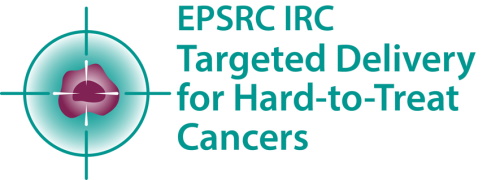
Submitted by L. Millard on Thu, 06/10/2022 - 12:11
The just-published Cancer in Sight blog, written by Professor David Fairén-Jiménez, lead of the Adsorption and Advanced Materials Lab at the University of Cambridge and IRC Investigator, sets out the future promise of MOFs to target hard-to-treat cancers.
Explaining how his research is positioned in the wider IRC programme, Professor Fairén-Jiménez writes: “While I have been working on the development of MOFs as a platform technology for many years, joining the IRC marked a significant point of difference. Until then, the focus of my lab had been on cancer as a single disease, but the IRC brought together scientists working on a range of technologies to focus on three cancers – glioblastoma, pancreatic cancer and mesothelioma.”
This initiative is part of the IRC’s ambition to speed up the journey to clinic and support the development of MOFs to better understand the biology behind the materials and how we can tune their properties to have better targeting abilities and efficacy against the cancer. We are also working on including antibodies on the external surface of the materials which will mark the next generation of MOFs Professor David Fairén-Jiménez, IRC Investigator
Setting out the challenges of treating the cancers within sight of the IRC – “In addition to being difficult to detect early and fully remove surgically (if possible), these cancers have endogenous barriers – natural defence mechanisms – which include the blood-brain barrier and tissue stroma, which drugs need to cross in order to reach the tumour. Pancreatic and mesothelioma tumours have fibrous outer layers making drug penetration problematic” – the blog, titled ‘Direct delivery – metal organic frameworks to target hard-to-treat cancers’, highlights the features of MOFs that make them of interest to targeted drug delivery.
Considering the stages on the journey to clinic – each bringing a new set of challenges –Professor Fairén-Jiménez sets out the recent partnership between the IRC and University of Liverpool which will enable study of the formulations of the MOFs under live conditions. He writes: “This initiative is part of the IRC’s ambition to speed up the journey to clinic and support the development of MOFs to better understand the biology behind the materials and how we can tune their properties to have better targeting abilities and efficacy against the cancer. We are also working on including antibodies on the external surface of the materials which will mark the next generation of MOFs.”
• Read the full blog ‘Direct delivery – metal organic frameworks to target hard-to-treat cancers’ here.


